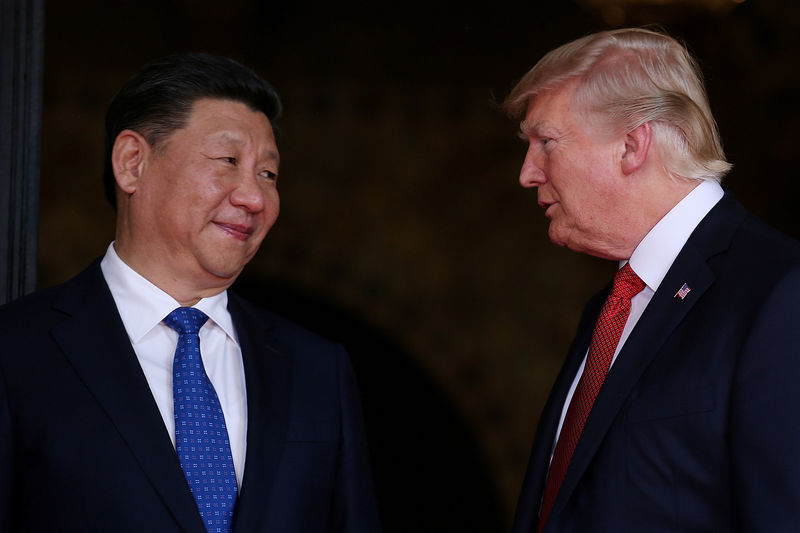BEIJING (Reuters) - A U.S. business lobby in China said on Thursday that Washington should use leverage afforded by China's desire to avoid trade frictions with the United States ahead of its Communist Party Congress this fall in order to fix market access discrepancies.
Beijing and Washington agreed to 100 days of trade talks after U.S. President Donald Trump met his counterpart Xi Jinping in April, aimed at cutting last year's $347 billion (267.8 billion pounds) U.S. trade in goods deficit with the world's second largest economy.
But critics within U.S. industry have said that outcomes of the talks so far have yielded only superficial remedies and failed to address more pressing issues of Chinese market access restrictions and industrial policies.
Social and economic stability is seen as a top priority for China's ruling elite ahead of a 5-yearly party congress this fall. Diplomats suggest that turmoil in relations with the United States would be an unwanted distraction for Xi ahead of a tricky leadership transition within the party.
William Zarit, Chairman of the American Chamber of Commerce in China, said the Chinese leadership wants to go into the congress "without any major difficulties in the trade area with the U.S.."
"So, I'm actually hoping that this can be a positive for coming up with some measures that will address the fairness and reciprocal treatment issues," Zarit said in a meeting with reporters.
Using that leverage ahead of the congress was "part of the conversation" with U.S. officials and lawmakers when the chamber made a lobbying trip to Washington in early May.
But Zarit added that it was not a long-term solution and that the Trump administration needed to be more strategic in trade relations with China.
During the May trip, the chamber met with U.S. Treasury Secretary Steven Mnuchin, Trump trade advisor Peter Navarro, and dozens of lawmakers, including Republican Senate Majority Leader Mitch McConnell, and pressed them to ensure U.S.-China trade relations were based on "reciprocal treatment".
The U.S. business community in China, which had long lobbied Washington against aggressive policies on China out of fear of retribution, has in recent months advocated for more forceful measures to get China to open its market wider.
China says foreign companies receive equal treatment under Chinese laws a policies, but many sectors of China's economy are either off limits or severely restricted to foreign investors.
